Looking Backward by Edward Bellamy
"First  published in 1888 and a
phenomenal bestseller, Looking Backward is Edward
published in 1888 and a
phenomenal bestseller, Looking Backward is Edward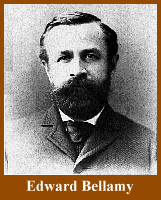 Bellamy's utopian novel about a nineteenth-century Bostonian who
awakes after a sleep of more than one hundred years to find himself in the year 2000 in a
world of near-perfect cooperation, harmony, and prosperity. More than just a fanciful
novel, Looking Backward was, in effect, Bellamy's blueprint for a socialist-type state,
conceived in response to the problems of the Gilded Age brought on in part by the pace of
late-nineteenth-century industrialization. The novel had an enormous impact at the time of
its publication, setting in motion a wave of reform activity and creating a vogue for
utopian novels that continued over the next three decades."
Bellamy's utopian novel about a nineteenth-century Bostonian who
awakes after a sleep of more than one hundred years to find himself in the year 2000 in a
world of near-perfect cooperation, harmony, and prosperity. More than just a fanciful
novel, Looking Backward was, in effect, Bellamy's blueprint for a socialist-type state,
conceived in response to the problems of the Gilded Age brought on in part by the pace of
late-nineteenth-century industrialization. The novel had an enormous impact at the time of
its publication, setting in motion a wave of reform activity and creating a vogue for
utopian novels that continued over the next three decades."
The publisher of Derek Phillips' Looking Backward: A Critical Appraisal of
Communitarian Thought says, "When social reformers blame the current ills of
Western culture on the loss of
community, they often evoke an ideal past in which societies were characterized by shared
values, respect for tradition, commitment to the common good, and similar attributes.
Communitarians assert that community was prominent in the past, and argue that reclaiming
the role community formerly played is necessary to counter the negative effects of
individualism and liberal thinking. Considering the relevance of community for our moral
and political life today, Derek Phillips offers the first thorough critique of the
historical, often nostalgic, claims that underlie dominant versions of communitarian
philosophy.When social reformers blame the current ills of Western culture on the loss of
community, they often evoke an ideal past in which societies were characterized by shared
values, respect for tradition, commitment to the common good, and similar attributes.
Communitarians assert that community was prominent in the past, and argue that reclaiming
the role community formerly played is necessary to counter the negative effects of
individualism and liberal thinking. Considering the relevance of community for our moral
and political life today, Derek Phillips offers the first thorough critique of the
historical, often nostalgic, claims that underlie dominant versions of communitarian
philosophy."
utopian fiction, anticipates a future America (the year 2000) of nationalized
industry, equal distribution of wealth and the destruction of class divisions
In this utopian world, loyalty to the solidarity of the state holds the society
together. Bellamy called this philosophy Nationalism.
Bellamy said "Looking Backward was written in the belief that the Golden Age
lies before us and not behind us, and is not far away." He inspired many
people to accept socialism. A group of people in Washington state in 1887 tried to build a
community based on Bellamy's novels. They named their socialist utopia -- The Equality
Colony. They got the name from Bellamy's novel, Equality. They felt their colony
would inspire the people of Washington to make the whole state socialist.
Within a year, they had over 300 people living in Equality. Typical of all socialist
utopias, women work outside the home and children are cared for by others. The center of
their community was the communal dining hall where they held their meetings and voted on
leaders and projects.
Of course, it quickly fell apart in a few years because people were lured away by
better jobs and pay than they got there. Here are two photographs of the cabins and the
community dining room.
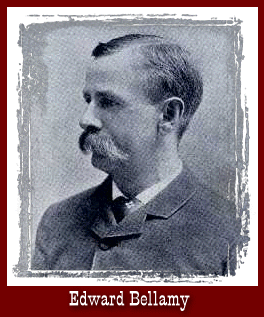

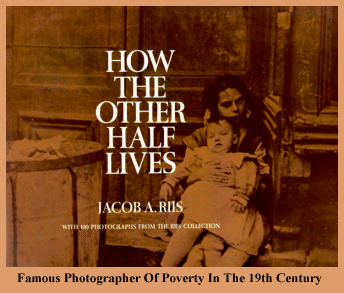



Sarah Witt
It  saddens me when ever I read a
Unificationist give praise to a teaching of Satan. Let me give one example. Sarah Witt has
written in praise of socialism and blasted capitalism in a review of Looking Backward.
saddens me when ever I read a
Unificationist give praise to a teaching of Satan. Let me give one example. Sarah Witt has
written in praise of socialism and blasted capitalism in a review of Looking Backward.
She writes, "In Sylvia Bowman’s book, EDWARD BELLAMY ABROAD, she pointed
out that even the top leaders of the former Soviet Union were influenced by
Bellamy’s vision, regarding Looking Backward as the finest literature to come
out of the United States. Of course, this was before the fall of Communism. And it
is also before what I predict is the impending fall of the competitive capitalist
free-market economy. For if Bellamy’s prediction is true that the Kingdom of God on
Earth will be realized by the year 2000, then the present economic system extant in the
United States and the developed nations, must quickly evolve into a system which
will guarantee a state of co-existence, co-prosperity and common cause."
I hope that Sara Witt is in a minority in the UC and will soon be enlightened to the
evil of socialism and the good of capitalism. Sadly, the official Divine Principle
book says that socialism is the economy of the future ideal world. Bruce Casino has
written in favor of this view in the Unification News. But Rev. Moon has said the
opposite and spent over a billion dollars on the Washington Times that champions
free enterprise. He has not spent a billion dollars to help liberal and socialist writers
and publications.
One of the greatest champions of capitalism in the 20th century is Friedrich Hayek
who received the Nobel Prize in economics. Rev. Moon gave him $50,000 as a gift in
appreciation for his work against socialism. Rev. Moon would never give $50,000 to Hayek's
opponent, the socialist, Michael Harrington. The goal of God is an ideal world where
everyone is treated fairly, but the economics will be free enterprise not statist,
centralized economics.
OUR REVIEW OF LOOKING BACKWARD
In an introduction to Looking Backward published by Penguin Press, we read
that this "novel concerned a young gentleman a young gentleman, Julian West, who
awakens after a trance-induced sleep of more than a century to find his native Boston has
been transformed. Gone is the city of fear, class strife, labor strikes, and
extremes of wealth and poverty. In its place, as West learns from his new host and
guide, Dr. Lette, Boston (and America of the year 2000 has been changed into a society of
full employment, material abundance, and social harmony for all citizens who, in turn,
gladly serve in the nation's quasi-military industrial army under the banner of
Nationalism."
Socialist Utopia
"He had no idea that his utopian novel of a Christian socialist America of the
year 2000 would sell nearly half a million copies over the next few years, that it would
initiate a national political and social reform movement in its authors name."
In other words, this is a famous book that has touched the hearts of many people who dream
of world peace. Two liberal intellectuals of the 20th century, John Dewey and
Charles Beard, admired the book.
"Horrid World"
Bellamy grew up in a town in Massachusetts where he saw children working twelve and
fourteen-hour days in mills and factories. He saw the "crowded tenements,
unemployment, sickness, strikes. ... One newspaper even reported families living in holes
dug in the river bank."
He said he wrote his book because he could not "bear the thought of leaving his
children, anyone's, anybody's children to struggle in such a horrid world as this."
"He seems to have been unusually sensitive to all human pain. Large
segments of the American public, however, welcomed his book because they agreed with him
that theirs was a 'horrid world' in need of drastic change.'"
Mark Twain had labeled the end of the 19th Century the Gilded Age. "To
many, the Gilded Age seemed a triumph of only a few tycoons who amasses fortunes in
manufacture and processing while flaunting law and ethics, and rolling like juggernauts
over their business competitors." Men like Andrew Carnegie, Cornelius Vanderbilt and
John D. Rockefeller were called Robber Barons.
"In 1880 well over one million children under sixteen years of age were at work
in American industry in workdays of more than ten hours each." Socialism became
a popular philosophy. Bellamy uses the word "Nationalism."
Socialists were upset at people like Herbert Spencer and Andrew Carnegie whose words
seemed cruel and heartless. Carnegie said that laissez-faire capitalism was
"essential for the future progress of the race," and he was right. But he
was wrong when he said that there would have to be "great inequality of environment" and
concentration of business ... in the hands of a few."
It wasn't until the 20th century that apologists for capitalism would explain how
Carnegie was wrong and how capitalism helps the poor better than socialism does.
Hayek wrote a brilliant book called Capitalism and the Historians about the
so-called Robber Barons showing that government was the problem, not free enterprise.
Progress and Poverty
A 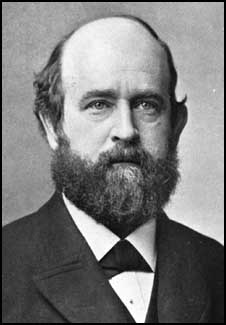 popular
book at the time, Progress and Poverty by Henry George, greatly influenced
Bellamy. George wrote that "association in equality is the law of
progress." Bellamy and many others were moved by George when he wrote that he
envisioned a time when "each one will be free to follow the best and noblest
impulses, unfettered by the restrictions and necessities ... when the poorest and meanest
will have a chance to use his God-given faculties, and not be forced to drudge away the
best part of his time." He called it "the promised Millennium" and
"the Golden Age ... the city of God on earth."
popular
book at the time, Progress and Poverty by Henry George, greatly influenced
Bellamy. George wrote that "association in equality is the law of
progress." Bellamy and many others were moved by George when he wrote that he
envisioned a time when "each one will be free to follow the best and noblest
impulses, unfettered by the restrictions and necessities ... when the poorest and meanest
will have a chance to use his God-given faculties, and not be forced to drudge away the
best part of his time." He called it "the promised Millennium" and
"the Golden Age ... the city of God on earth."
MILLENNIUM
In the introduction we read that America's "ideological patriarchs, the Puritan
ministers," felt that Satan would soon be suppressed "for the one thousand
perfect years of the Christian Millennium. ... Copius writings of the colonial New
Englanders show their belief that the Millennium was at hand, that soon they could expect
one thousand years of harmonious life suffused by the spirit of the Messiah and
originating spatially in America. The Puritans (and subsequent generations of
American writers) never tired of invoking the metaphors in which the Old Testament
prophets had envisioned the 'new heavens and new earth.' of the Millennium. Peace
would reign as swords were beaten into plowshares, and both spiritual and agricultural
abundance would result from the desert blooming like the rose in an extensive godly
kingdom."
"The endurance of these beliefs in secular literature through more than three
centuries of American writing testifies to the enormous power of the myth of the American
New Jerusalem." Bellamy and other socialists often use the phrase "Golden
Age." The woman who befriends West in the year 2000, Edith, is called "the
radiant daughter of a golden age."
Bellamy Clubs
"By 1890 there were 162 Bellamy Clubs in 27 states." He had a
magazine, The Nationalist. Bellamy pushed for government ownership of coal mines,
telephone and telegraph companies and railroads.
The spirit of America has been one of optimism: "For Americans have never
abandoned the mission to transform a gilded nation into an exemplary one."
Sadly, the words of Sun Myung Moon have not sold millions of copies like Bellamy
words have done. So far, there has not been anyone like St. Paul who has taken the
words of Rev. Moon that are in many ways like poetry, and make it real for people.
"Excessive Individualism"
Let's look at some ideas Bellamy writes in Looking Backward. Dr. Lette
says, "the excessive individualism which then prevailed was inconsistent with much
public spirit. What little wealth you had seems almost wholly to have been lavished
in private luxury." In his socialist world wealth is spent on "the
adornment of the city, which all enjoy in equal degree." The big evil that the
socialist utopia has got rid of is the "big corporations" whose
"tyranny" caused mankind to labor in "servitude not to men but to soulless
machines incapable of any motive but insatiable greed." This "corporate
tyranny" was "hideous." The only possible future of capitalism is
that corporations keep getting bigger and "crush all competition" and makes the
"rich richer."
Corporations are by nature "irresponsible" and in Bellamy's utopia
"profit" is eliminated by making the government "one great business
corporation" ... "the sole employer, the final monopoly."
West tells Lette that "such stupendous change" could only happen with
"great bloodshed and terrible convulsions." Bellamy is a
peaceful socialist and has Lette respond "on the contrary, there was absolutely no
violence." The logic of socialism somehow was seen by everyone and it swept the
world. West asks if the Marxist revolutionaries of the 19th century had any impact
on the world, and Lette answers that they didn't. This is one of the fundamental
blind spots of socialists who miss the bus on who are the real bad guys. Satan has
naive socialists focus on CEOs of "big" businesses, while violent
revolutionaries dismiss democratic socialists as wimps and proceeded in the 20th century
to take over much of the earth. Whatever evil capitalist owners of business come up
with are nothing compared to what Marxist leaders inflict. Compare Carnegie,
Rockefeller to Lenin, Stalin, Hitler and Mao. Compare Castro today to the richest
capitalist in the world, Bill Gates and tell me who is more evil? If a person tries
to leave Cuba he is shot; if an employee of Microsoft tries to leave he is given a
severance check. Take your pick.
and terrible convulsions." Bellamy is a
peaceful socialist and has Lette respond "on the contrary, there was absolutely no
violence." The logic of socialism somehow was seen by everyone and it swept the
world. West asks if the Marxist revolutionaries of the 19th century had any impact
on the world, and Lette answers that they didn't. This is one of the fundamental
blind spots of socialists who miss the bus on who are the real bad guys. Satan has
naive socialists focus on CEOs of "big" businesses, while violent
revolutionaries dismiss democratic socialists as wimps and proceeded in the 20th century
to take over much of the earth. Whatever evil capitalist owners of business come up
with are nothing compared to what Marxist leaders inflict. Compare Carnegie,
Rockefeller to Lenin, Stalin, Hitler and Mao. Compare Castro today to the richest
capitalist in the world, Bill Gates and tell me who is more evil? If a person tries
to leave Cuba he is shot; if an employee of Microsoft tries to leave he is given a
severance check. Take your pick.
Universal Military Service
Bellamy's world is based on "the principle of universal military
service." Rebels are locked away. There are very few because even though
it is compulsory, everyone is happy in their worker's paradise. Everyone has sense
enough to see that it is "so absolutely natural and reasonable that the idea of it
being compulsory has ceased to be thought of." Socialism is the truth that will
set mankind free and is therefore an "absolute inevitableness." In the
book, people serve in the industrial army for 24 years -- from the age of 21 to 45.
After that they retire.
Regulations
"Regulations" are set by sensible people in the centralized
bureaucracy. When everyone finally figured out that focusing on the self and private
was waste a of time and gave up selfishness then crime disappeared. The first thing
that West noticed is that there are no locks on doors in Boston in 2000.
ABSOLUTE EQUALITY
Lette tells West that "the world is now heaven compared with what it was in
your day." Throughout the book different aspects of socialist thought are
presented. "There is neither selling nor borrowing nowadays." There
are no banks because there is no money. Everyone has a "credit card" that
is used at "public storehouses" where everyone gets what he needs.
Everyone lives "absolute equity." No one is allowed to become "a
reckless spendthrift" because if anyone started taking too much "he would
receive his allowance monthly or weekly instead of yearly, or if necessary not be
permitted to handle it at all." I guess there is a spendthrift squad watching
everyone to make sure they spend their monthly allowance correctly. Bellamy doesn't
say because some huge percent, let's say 99% of the people are naturally not selfish and
stupid.
Cradle to Grave
There is no worry or fear any more. "No man anymore has any care for the
morrow, either for himself or his children, for the nation guarantees the nurture,
education, and comfortable maintenance of every citizen from the cradle to the
grave."
The central bureaucracy is made of "fairly sensible men" who organize the
world. They make sure there is no "poverty" or "inordinate
luxury." Mankind in a socialist ideal world have their "coarser
motives" replaced by "higher motives." People do not work for self
interest, "but service of the nation, patriotism, passion for humanity" just as
a soldier does for his country. Bellamy's industrial army is a smooth running
machine with generals to privates who all know their place.
Bellamy goes into how beautiful everything is. And every person respects each
other, no matter what kind of work they do because everyone is given a job that best suits
them. These happy workers believe in "cooperation" instead of
"individualism." Any able bodied person who refuses to work "is
sentenced to solitary imprisonment on bread and water until he consents."
World Government
America was "the pioneer of the evolution" of a "worldwide"
"federal union" ... "An international council regulates ...
commerce." Bellamy quotes the Victorian poet, Tennyson, who wrote in Locksley
Hall:
_____________________________________________________
For I dipped into the future, far as human eye could see,
Saw the vision of the world, and all the wonder that would be; ...
Till the war-drum throbbed no longer, and the battle-flags were
furled.
In Parliament of man, the Federation of the world.
Then the common sense of most shall hold a fretful realm in
awe,
And the kindly earth slumber, lapped in universal law
______________________________________________________
Tennyson is right that it is "common sense" to
believe there will be "universal law" in a "Federation of the
world." For one hundred years after Tennyson wrote this, it was violent
socialists that twisted this "common sense" and "universal law."
Nations that took the name of socialism, such as the Union of Soviet Socialist Republic
and Hitler's Socialist party, killed and tortured more people than any nation had ever
done in history.
Capitalism is God's "common sense." Socialism
is Satan's "common sense.". Satan makes Bellamy's socialist ideas seem
rational but the truth is that socialism doesn't work -- even with people who believe in
it. Some people built socialist communities after reading Bellamy. Each one failed
and the people returned to the world of private property.
In his ideal world "education and good manners" are
"universal." There is no "lust of acquisition." There is
"no army or navy. ... no taxes ... no treasury." It is a "paradise of
order, equity, and felicity." There is "absolute equality" instead of
"the great wastes" of "competition."
Capitalists are Evil to Socialists
To 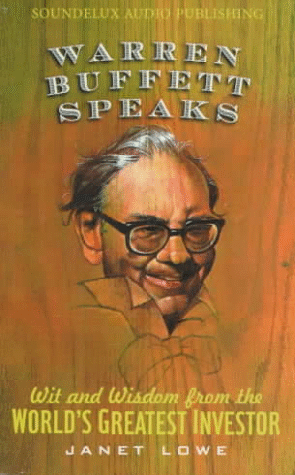 socialists, capitalists are like
ruthless plantation owners who want everyone to be their slave: "The day dream of the
nineteenth-century producer was to gain absolute control of the supply of some necessity
of life, so that he might keep the public at the verge of starvation." Is this
the "daydream" of the CEOs of the Fortune 500? Do billionaires like Bill
Gates, Warren Buffet and Sam Walton want people to be on the "verge of
starvation?" Each of these men have written a book of their philosophy of
life. There are many biographies of each man. What do these books say?
Are these men diabolical? Have they enslaved people? Are they angry and want
the state to crush their opponents?
socialists, capitalists are like
ruthless plantation owners who want everyone to be their slave: "The day dream of the
nineteenth-century producer was to gain absolute control of the supply of some necessity
of life, so that he might keep the public at the verge of starvation." Is this
the "daydream" of the CEOs of the Fortune 500? Do billionaires like Bill
Gates, Warren Buffet and Sam Walton want people to be on the "verge of
starvation?" Each of these men have written a book of their philosophy of
life. There are many biographies of each man. What do these books say?
Are these men diabolical? Have they enslaved people? Are they angry and want
the state to crush their opponents?
Many socialist leaders have not just daydreamed about that but
have actually starved tens of millions of people when they got "absolute control of
some necessity of life." There isn't one big corporation in America -- from
Hewlett-Packard to Disney that has a goal of "absolute control."
"absolute control."
Bellamy says in Looking Backward that capitalists made
a "science" out of "selfishness." "Competition" is
"selfishness."
Capitalists
Capitalists "find their gain in the loss of
others." "The keynote of the literature of the period was one of
compassion for the poor and unfortunate, and indignant outcry against the failure of the
social machinery to ameliorate the miseries of men." "The best of the men of
that time," who are Bellamy and writers like Dickens, were aware of the
"hideousness of the spectacle about them." Speaking for himself
Bellamy has the character say that the "lives of some of the more sensitive and
generous-hearted of them were rendered well-nigh unendurable by the intensity of their
sympathies."
Christian Century
He says "the nineteenth century was in name
Christian" but the reality was that "the entire commercial and industrial"
area of life had an "anti-Christian spirit" and they cared "little" 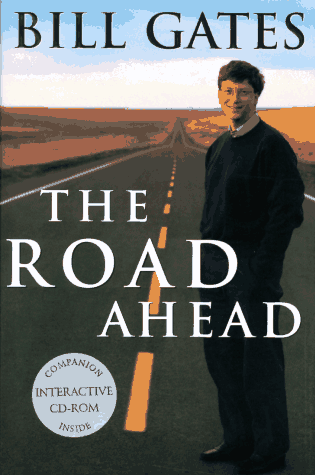 for being "followers of Jesus Christ."
for being "followers of Jesus Christ."
Greed
Greed and self-seeking in the 19th century is gone and now
"It is very easy to believe in the fatherhood of God in the twentieth
century." The world has gone from the "old to the new order."
Bellamy promises "limitless development" and "enthusiasm which the new
faith inspired."
Bellamy sees himself as a hero: "heroes [meaning Bellamy
feels he and his fellow sensitive socialists] burst the barred gate" and
"revealed" to the hopeless masses" a "vista of progress whose end ...
dazzles us."
Ancient Dream of Liberty
People somehow, Bellamy does not say how this happens, changed
from being "predatory" and "barbarians" to be "coworkers"
living in "happiness." No one has "immoderate
possessions." "Humanity's ancient dream of liberty, equality, fraternity,
mocked by so many ages, at last was realized." No more "cold-hearted,
greedy, self-seeking, brutal people."
Mankind finally saw the socialist light and gave up their
"depraved tendencies." "Human nature in its essential qualities is
good, not bad, that men by their natural intention and structure are generous, not
selfish, pitiful, not cruel, sympathetic, not arrogant, god-like in aspirations, instinct
with divinest impulses of tenderness and self-sacrifice, images of God indeed, not the
travesties upon Him they had seemed."
Satan twists sensitive people, like Bellamy, who tune into
some aspects of God's dream to go down a road to hell paved with good intentions.
Bellamy was given a glimpse of the ideal world but Satan
corrupted him with the ideology of socialism. If Bellamy had praised Adam Smith and
limited government instead of centralized socialism, then his book would have been
great. As it is, the result is that his book had done more harm than good.
Satan is a master of tricking people. The only result of socialism is poverty.
Ayn Rand's novels are more in line with God than Bellamy's. Sadly, she makes many
errors. So far, no one has combined the idea of God's ideal world and
capitalism. As far as we know, we are the first.
Official Divine Principle
The official UC Divine Principle ends by sounding
exactly like Bellamy's book. Won Pil Kim, the first disciple of Rev. Moon, gave a
speech on the ideal world and predicted things that sound much like Bellamy. Like
Bellamy, Unificationists are sensitive people who do not want to be "greedy" or
"selfish." But they need, as well as everyone else, to see that there is
not one good thing about socialism.
Bellamy wrote that in the ideal world "people will
live" in "unity, without strife or envying, violence or
overreaching." "Earthly existence" is to have "unbounded
possibilities of human nature. The betterment of mankind from generation to
generation, physically, mentally, morally, is recognized as the one great object supremely
worthy of effort and of sacrifice."
God's Ideal
"Each generation" will improve on "the
realization of God's ideal." There will be "the return of man to God 'who
is our home.'" When "the divine secret" is "perfectly
unfolded" then "with a tear for the dark past," we will then "turn to
the dazzling future, and, veiling our eyes, press forward. The long and weary winter
... is ended. It's summer has begun."
Rev. Moon constantly talks about a "cosmic spring"
coming because mankind now has the truth to set it free -- the Divine Principle.
One of the major reasons the Divine Principle book is not a best seller is because
it glorifies Christian socialism as the structure of the kingdom of heaven on earth.
Satan has been able to invade the very core of the official teaching of the Messiah's
movement. When Rev. Moon met the president of the Soviet Union, a socialist empire,
he told Gorbachev that the salvation of Russia was free enterprise. When the
leaders of Moon's movement grasp this "divine secret" and rewrite the Principle
to be like our version that praises Adam Smith instead of Charles Kingsley, then it will
sweep the earth.
Bellamy writes, "Do you not believe that spirits
sometimes come back to the world to fulfill some work that lay near their
hearts?" I hope Bellamy has seen and understood the terrible damage he has done
by helping make the 20th century the worst century in history because it adopted
socialism. I pray he is working from spirit world to teach those on earth that he
was wrong.
Mind Control
He says capitalists use mind control to dupe and hurt
people. Their goods are "bait." Sales people are expert at "inducing
the customers to buy, buy, buy for money if they had, for credit if they had it not, to
buy what they wanted not, more than they wanted, what they could not
afford." He sounds like Steve Hassan in his crusade against those who he feels
manipulate minds. Bellamy, like Hassan, cannot see that advertising can be powerful,
but it is not force. Bellamy writes, "Surely it was the sheerest waste to force
upon people what they did not want, but what might be useful to another. The nation
was so much the poorer for every such achievement. What were those clerks thinking
of?" They do not care for the "public interest." They just care
about their "immediate personal interest." The result of their selfishness
ends up hurting people when they "induce" weak minded customers who enter their
four walls to be "wasteful." They "encourage prodigality."
Substitute cult leader for clerks and you have Hassan's
argument. Hassan calls it "coercive persuasion." Bellamy is wrong, as
Hassan is wrong, in thinking that "force" has been used. Bellamy and Hassan are
very interested in the government using force against those who they feel use and abuse
people instead of thinking of "the general prosperity."
I remember reading a popular book many years ago called The
Hidden Persuaders by Vance Packard. It was about how sinister Madison Avenue is
in using psychological studies and research to make their products so appealing that
people lose all sense of reason and buy their product. One chapter, by this very
liberal author, was how sneaky the managers of grocery stores were to place certain items
at just the right spot which would overwhelm the shopper with emotion to buy. Every
square inch of the store was mapped out so the average person didn't have a chance.
Researchers used hidden cameras to measure the rate of blinking when customers came into
the store. The unsuspecting shopper blinked much faster than normal. And when
he or she was entices by some product their blinking went even higher. Store owners
then placed their items in those places that caused the most involuntary impulse buying
from the customer. As soon as they entered the store, they were sheep for slaughter
by the wicked capitalists who had no thought for the well being of the customer.
Packard went into how some products were placed at eye level. Some products used
colors that would bring out an emotional response that the person was unable to
overcome. These bastards at Safeway even put donuts at just the right spot and of
course, candy bars at the check out counter. If grocery store owners had any heart
at all they wouldn't even sell donuts, right? Do these son-of-a-bitches even explain
that the donuts are so loaded with bad fat that it will literally kill the customer?
And what about those Las Vegas casinos? There are no clocks on the walls and how can
anyone resist from becoming a zombie when they offer food so cheaply?
Packard said that new car dealers would put convertibles in
showrooms knowing that very few would buy one but most people would be drawn into the
showroom when they saw it. Car dealers are like Pied Pipers. Then the customer
is attacked and before he knows what has happened he has bought a four door sedan that he
can't afford and doesn't even need. They tricked him into getting into the store and
once he was in their territory they ruined him as they smiled and seemed nice. To
socialists, capitalists are like so-called cult leaders who train their followers to using
every manipulative device they can to take from people. They go to the government
and want to regulate everyone from car dealers to leaders of new religious movements to
barbers. Socialists have no faith in freedom and in people. They believe they
are the good guys. They aren't. They do more harm than good. They are
busy bodies who make things worse after they throw a wrench in the machinery of free
enterprise. They are so intellectually bankrupt that they equate advertising with
"force." The founding fathers of America knew that the danger was in
government, not in private groups who do not put a gun at people heads like governments
do. Groups like the Mafia are a tiny percent of society and even they would be
smaller if government didn't screw up the economy so much by enacting stupid laws like
prohibition and countless regulations. The more idealistic socialists want to
regulate everything, the more disrespect for the law the average person feels.
True Life Insurance
Bellamy explains that socialism is "true life
insurance" because everyone lives in a "national family" who help each
other. Again, this is wishful thinking. America has social security and it has
been a disaster. The welfare program has been a disaster. The public schools
are a disaster. Everything that socialists touch makes people's lives worse.
The absolute best insurance is extended family. Socialists focus on bureaucracies
instead of the family. They emasculate men and turn women toward Uncle Sam.
They convince people they cannot think and take care of themselves, so they need to turn
to the violence of the State to force people to do right. Before America became
socialist, old people were taken care of at home. Now that women have left their
husbands for Uncle Sam, they have put the elders in nursing homes or encourage senior
citizens to live alone or in old folks communities. Socialism has destroyed the
extended family. The grandfather is a joke, not a patriarch. He lives
somewhere away from the grand kids and gives them candy when he sometimes sees them.
Military
Bellamy says that when he sees a "military parade"
he feels "inspired" and filled with "emotion." Here is
"order and reason, an exhibition of what intelligent cooperation can
accomplish." It is "perfect concert of action, their organization under
one control, which made these men the tremendous engine they were, able to vanquish a mob
ten times as numerous." He wonders when mankind will transfer the military from
"killing" to the "much more important" task of "feeding and
clothing" people. We have "a trained army" to do the former, but a
"mob" to do the latter. There is a "lack of organization" in
free enterprise. It seems so bewildering to a socialist to see how Adam Smith's
invisible hand could work. Socialists are control freaks. There cannot be much
deviation. Anti cult people, for example, can't stand it that there are groups that
do not fit the mold. They are like germs in an orderly world acting weird.
Conformity is everything to a socialist who desperately wants to control people. The
danger is not in voluntary situations, but in government taking on the role of controlling
people. At the slightest disagreement, they will have a swat team pointing high
powered guns at your head. If you make even one move they may blow you away.
Bellamy and socialists think that the centralized power of the state is
"sensitive" compared to all the jerks and idiots who lead private
organizations. The bottom line is that a person can walk out of a cult or a
job. You cannot walk away from a police officer who puts a gun to your head because
you didn't get their permission to sell something. Bill Gates says he didn't ask the
most most powerful computer company in the world, IBM, if he could do what he
wanted. But he has to do what the government tells him to do or he will be
shot. Why are socialists so scared of IBM and not the government? It is
because of Satan.
Capitalism Seems Messy
Capitalism seems so messy, wasteful. inefficient and selfish
to a socialist who wants to regulate everyone for their own good. Socialists deeply
believe that centralized power can be sensitive and encourage creativity and love.
Sensitive
Bellamy writes how he is sensitive to the suffering of the
poor around him. Conservatives call people like Bellamy "bleeding heart
liberals." This drives liberals crazy who see this as proof that conservatives
are heartless. This is an example of how he feels about the slums he sees:
"From the black doorways and windows of the rookeries on every side came gusts of
fetid air. The streets and alleys reeked with the effluvia of a slave ship's
between-decks. As I passed I had glimpses within of pale babies gasping out their
lives amid sultry stenches, of hopeless-faced women deformed by hardship, retaining of
womanhood no trait save weakness, while from the windows leered girls with brows of
brass. Like the starving bands of mongrel curs that infest the streets of Moslem
towns, swarms of half-clad brutalized children filled the air with shrieks and curses as
they fought and tumbled among the garbage that littered the courtyards."
He sees these poor people as "woeful dwellers in this
Inferno" as "my brothers and sisters, my parents, my children, flesh of my
flesh, blood of my blood. The festering mass of human wretchedness about me offended not
my senses merely, but pierced my heart like a knife, so that I could not repress my sighs
and groans. I not only saw but felt in my body all that I saw." ... "as I
observed the wretched beings about me more closely, I perceived that they were all quite
dead. Their bodies were so many living sepulchers. ... Every stone of the reeking
pavements, every brick of the pestilential rookeries, found a tongue and called after me
as I fled: 'What hast thou done with my brother Abel?'"
The Rich
The wealthy few have "rich wines, gorgeous fabrics and
glistening jewels" that are the "ransom of many lives." He dreams he
goes back and tells his 19th century rich friends what he's seen "with fervency I
spoke of that new world, blessed with plenty, purified by justice and sweetened by
brotherly kindness." He "expected" them "to light up with
emotions akin to mine" but instead "they grew dark, angry and scornful.
Instead of enthusiasm "they shouted 'Madman!' 'Fanatic!' 'Enemy of the
society!' 'He says we are to have no more poor. Ha! Ha!'"
He felt his "heart would burst with the anguish of
finding that what was to me so plain and so all-important was to them meaningless, and
that I was powerless to make it other." He feels "pity for them and for
the world." This is how we feel about those who reject capitalism for socialism
after hearing our arguments and seeing reject Milton Friedman when he says what is
"so plain."
Socialists are Feminists
Women "welcome their riddance of housework"
because they put out too much "energy" and were "wasteful, in the extreme
as compared with the cooperative plan." Freed of housework women could then
find the "sort of work" in which they can "contribute" in ways that
are more "effectual, as well as more agreeable ... to the common weal."
"Married women have no housekeeping responsibilities now, you know, and a husband is
not a baby that he should be cared for."
Homemaker's lives are a "pathos ... of ennuied,
undeveloped lives, stunted at marriage, their narrow horizon, bounded so often,
physically, by the four walls of home, and morally by a petty circle of personal
interests." They "had no refuge in the breezy outdoor world of human
affairs, nor any interests save those of the family." Women can now enjoy the
wonderful world of men's work. "Our girls are full of ambition for their careers --
as our boys. Marriage, when it comes, does not mean incarceration for them, nor does
it separate them in any way from the larger interests in society, the bustling life of the
world."
Women briefly leave when they have a baby but she can't wait
to "return to her place among her comrades." If a woman is
"spirited" she would regard being dependent "upon men for support ...
humiliating."
Socialists are feminists, and Bellamy teaches that women will work outside the home.
Women can easily work outside the home because all housework is done by some division of
the industrial army. There are people who do cooking, cleaning and laundry.
"Clearly, Bellamy was sensitive to the plight of nineteenth-century women who were
worked to death if poor, or, if comfortable in circumstance, were suffocated
intellectually in their warm and genteel parlors. The one group died from slave
labor, the other languished under house arrest. Bellamy corrects both conditions in
his Boston of 2000, for pay in the woman's industrial army equals that of men."
Bellamy believed that centralization brings "an efficiency and economy
unattainable in smaller operations." There would be centralized kitchens, for
example.
This part of Bellamy's book is the most diabolical. Socialist/feminists hate
the traditional family and have practically destroyed the family in the 20th
century. We write extensively of this in our chapter "Patriarchy" in Ten
Keys to Building the Ideal World.
Tears
Bellamy has his main character try again to convert his
friends. "Although despairing, I could not give over. Still I strove with
them. Tears poured upon my eyes. I became inarticulate. I panted, I
sobbed, I groaned." Socialists feel more deeply about their ideal than
capitalists do. Socialists don't think as clearly as capitalists, but they are more
emotional about an ideal. Socialists see a future of a perfect, ideal world. Capitalists
don't. Like we said earlier, we think we're the first.
Bellamy ends his book saying how his socialist utopia is the
"world's salvation." Socialists are on an emotional crusade. Capitalists
look intellectual and unfeeling. The billionaire, Rich Devos has a book called
Compassionate Capitalism but it seems an oxymoron to this world. And then Devos
is accused of being a cult figure who got his money by tricking and duping people.
Again Hassan is leading the charge against what is new by calling his company, Amway, a
cult. Some have tried to argue how capitalists help people more.
Dawn of the New Era
Socialists fee they are the only caring people on earth.
Capitalists are "indifferent to the wretchedness of my brothers" ...
"cynically incredulous of better things." A capitalist is "a
worshipper of Chaos." They like the "present chaotic state of
society" and reject any notion of an "ideal state." But he says in
the Postscript to the book that "the dawn of the new era is already at
hand." He says it may seem "incredible" "at first thought"
"in view of the vastness of the changes" needed, but "the teaching of
history" is that "great national transformations" have happened with
"rapidity and resistless momentum." He gives examples such as that the
Antislavery Society was formed in 1832 "in Boston by a few so-called
visionaries. Thirty-eight years later, in 1870, the society disbanded, its program
fully carried out." He predicts that like "magic" we will wake up one
morning and there will be "true religious feeling." People, he feels, are
at the end. They can't stand this evil world anymore.
Great Changes
They are "verging on absolute revolt, against social
conditions that reduce life to a brutal struggle for existence, mock every dictate of
ethics and religion, and render well-nigh futile the efforts of philanthropy."
He sounds like Billy Graham who has spent over 50 years saying Jesus is coming any
moment. Bellamy ends his book saying that "the present aspect of society is
portentous of great changes. The only question is whether they will be for the
better or the worse." Sadly, Bellamy has been a force for the worse.
Both good and bad historical things have happened. 33 years
after Bellamy wrote his book God was able to send the Messiah in 1920. Thirty years after
Bellamy's book, Satan sent Lenin to build the Soviet Socialist State that brought more
suffering to mankind than anything in history. When the Soviet Utopia finally
collapsed 72 years later, the Messiah told the last president of Russia to embrace the
magic of free enterprise.
Golden Age
Bellamy said Looking Backward was written in the belief
that the Golden Age lies before us and not behind us, and is not far away. Our
children will surely see it, and we, too, who are already men and women, if we deserve it
by our faith and our works." Sadly, the legacy of Bellamy is that generations
have been crushed by socialism.
In the year 2000 there will not be an ideal world as Bellamy
dreamed. What do we have instead? Less than one thousand of one percent of
America knows the Divine Principle and those tiny few who profess to accept it
believe in socialism. Is the Messiah the most famous person in the world? No,
the President of the United States is. He keeps his job after committing adultery in
the Oval Office and his wife campaigns to nationalize health care. One morning we
woke up and watched people via television tear down the Berlin Wall. One day we woke
up and watched a video showing the Messiah, tell the Russian People to embrace
capitalism. We pray his followers and the world will accept it. When this
world begins to reject socialism and accept capitalism, then Satan will begin to lose much
of his power. Ultimately the kingdom of heaven will come when the world not only
accepts the right political ideology of limited government as the founders believed and
the world has rejected, but when the world is united on the fact that we all have one set
of True Parents. May that day come soon. If not, then we must fight the good
fight. Our tears for capitalism and all the other truths of God must be more than
the tears given for socialism and the other falsehoods of Satan.
SOCIALIST PHILOSOPHY
The following are some ideas of revolutionary socialists who
believe in the same ends as Bellamy but believe in different means. When the violent
socialists take over, who do they kill first? -- the peaceful, idealist socialists.
Democratic socialists play with fire.
MARX
One person defined socialism this way: "Socialism is
defined as (a) the common [social] ownership of the means of production and
(b) the just distribution of the fruits of production: "from
each according to his ability, and
to each according to his work" (Karl Marx). Karl Heinrich Marx
(1818-1883) is generally recognized as the "father" of modern
socialism. He was a bitter critic of early industrial-capitalism.
"Utopian Socialism [a term coined by Karl Marx, though
his was no less utopian]. This
was both a protest against the evils of early industrialization, and
a continuation of the
Enlightenment quest for human happiness.
"Marx's key ideas were:
"1. Socialism. This was to establish common ownership of
the means of production
(nationalization, i.e., abolition of privately-owned land,
factories, shops); there was to be an
equal distribution of goods, according to work performed.
"2. Capitalism was presented as the root of all evil.
Therefore, private ownership of the
means of production, the profits drawn from surplus value [the
difference between the
value of the product and the value of capital input], and the market
economy, were all
condemned as the exploitation of the working class, which was called
the proletariat (from
"proletarius," the lowest, free citizen of ancient Rome).
This proletariat was said to be
exploited by the ruling class, which was called by the French name
of bourgeoisie (from
"bourg," the early medieval European town), i.e. the
middle class.
"3. History was seen as the history of class struggle
(see "Historical Materialism" below).
"4. Private property was perceived as the basis of class
divisions.
"5. The state was seen as the instrument of the ruling
class, which used it to defend its own
interests, the basis of which was private property. Therefore, the
abolition of private
ownership of the means of production (in the capitalist-bourgeois
system this meant land,
machinery, factories, etc.) would, Marx taught, abolish classes and
thus create a classless
society. Since this society would not need a state, Marx stated that
"the state will wither
away."
" But, we may ask, if the fall of capitalism was
inevitable, why was revolution necessary to
bring about socialism?
"Marx explained that revolution was
necessary because the ruling class would fight to defend its power,
as it did in the
revolutions of 1789, 1830, 1848. For Marx, revolution was the force
moving history
forward.
HITLER
On the day Sun Myung Moon was born, February 24, 1920, Hitler began his public
ministry for Satan. He gave birth to his philosophy by giving a speech with the following
points:
"THE COMMON INTEREST BEFORE SELF-INTEREST - THAT IS THE SPIRIT OF THE PROGRAM. BREAKING OF
THE THRALDOM OF INTEREST - THAT IS THE KERNEL OF NATIONAL
SOCIALISM.
"The 25 points of the NSDAP Program
"We demand that the State shall make it its primary duty
to provide a livelihood for its citizens
"10. It must be the first duty of every citizen to
perform physical or mental work. The activities of the
individual must not clash with the general interest, but must
proceed within the framework of the community and be for the
general good.
"13. We demand the nationalization of all businesses
which have been formed into corporations (trusts).
"15. We demand the extensive development of insurance for
old age.
"17. We demand a land reform suitable to our national
requirements, the passing of a law for the expropriation of land for communal purposes without compensation; the abolition of ground rent, and the prohibition of all speculation in land. *
"18. We demand the ruthless prosecution of those whose
activities are injurious to the common interest. Common criminals, usurers, profiteers, etc., must be punished with death, whatever their creed or race.
"20. The State must consider a thorough reconstruction of
our national system of education (with the aim of opening up
to every able and hard-working German the possibility of
higher education and of thus obtaining advancement). The
curricula of all educational establishments must be brought
into line with the requirements of practical life. The aim of
the school must be to give the pupil, beginning with the
first sign of intelligence, a grasp of the nation of the
State (through the study of civic affairs). We demand the
education of gifted children of poor parents, whatever their
class or occupation, at the expense of the State.
"21. The State must ensure that the nation's health
standards are raised by protecting mothers and infants, by
prohibiting child labor, by promoting physical strength
through legislation providing for compulsory gymnastics and
sports, and by the extensive support of clubs engaged in the
physical training of youth.
"25. To put the whole of this programme into effect, we
demand the creation of a strong central state power for the Reich;
"The leaders of the Party promise to work ruthlessly --
if need be to sacrifice their very lives -- to translate this
programme into action.
"To take abstract and general principles, derived from a
philosophy which is based on a solid foundation of truth, and
transform them into a militant community whose members have the same political faith – a community which is precisely defined,
rigidly organized, of one mind and one will – such a
transformation is the most important task of all; for the possibility of successfully carrying out the idea is dependent on the successful
fulfillment of that task. Out of the army of millions who
feel the truth of these ideas, and even may understand them to some extent, one man must arise. This man must have the gift of being able to expound
general ideas in a clear and definite form, and, from the
world of vague ideas shimmering before the minds of the masses,
he must formulate principles that will be as clear-cut and firm as granite. He must fight
for these principles as the only true ones, until a solid rock of
common faith and common will emerges above the troubled waves
of vagrant ideas.
" Let it not be said that this is merely a visionary ideal, that this world would never tolerate it in practice and
that of itself it is impossible to attain.
"Man should take care not to have too low an estimate of
the power of an ideal. If there are some who may feel
disheartened over the present conditions, and if they happen to have served as soldiers, I would remind them of the time when their heroism was the
most convincing example of the power inherent in ideal
motives. It was not preoccupation about their daily bread that
led men to sacrifice their lives, but the love of their country, the faith which they had
in its greatness, and an all round feeling for the honour of
the nation.
Hitler said his goal was an "earthly paradise."
All these things sound exactly like Bellamy and many of them
sound exactly like the conclusion of the official Divine Principle. Let's pray for
the great day this world sees Satan's lie of socialism and embraces laissez-faire
capitalism and the traditional family. In other words, the philosophy of George Washington
and the other patriarchs who founded God's hope for the world, America. Let's not make the
blood of those million American men who fought for freedom be in vain. They didn't fight
for the ideals that America has embraced today. Let's restore those ideals peacefully and
have more passion and determination than socialist/femininsts like Bellamy and his
countless followers.



 published in 1888 and a
phenomenal bestseller, Looking Backward is Edward
published in 1888 and a
phenomenal bestseller, Looking Backward is Edward Bellamy's utopian novel about a nineteenth-century Bostonian who
awakes after a sleep of more than one hundred years to find himself in the year 2000 in a
world of near-perfect cooperation, harmony, and prosperity. More than just a fanciful
novel, Looking Backward was, in effect, Bellamy's blueprint for a socialist-type state,
conceived in response to the problems of the Gilded Age brought on in part by the pace of
late-nineteenth-century industrialization. The novel had an enormous impact at the time of
its publication, setting in motion a wave of reform activity and creating a vogue for
utopian novels that continued over the next three decades."
Bellamy's utopian novel about a nineteenth-century Bostonian who
awakes after a sleep of more than one hundred years to find himself in the year 2000 in a
world of near-perfect cooperation, harmony, and prosperity. More than just a fanciful
novel, Looking Backward was, in effect, Bellamy's blueprint for a socialist-type state,
conceived in response to the problems of the Gilded Age brought on in part by the pace of
late-nineteenth-century industrialization. The novel had an enormous impact at the time of
its publication, setting in motion a wave of reform activity and creating a vogue for
utopian novels that continued over the next three decades." 





 saddens me when ever I read a
Unificationist give praise to a teaching of Satan. Let me give one example. Sarah Witt has
written in praise of socialism and blasted capitalism in a review of Looking Backward.
saddens me when ever I read a
Unificationist give praise to a teaching of Satan. Let me give one example. Sarah Witt has
written in praise of socialism and blasted capitalism in a review of Looking Backward. popular
book at the time, Progress and Poverty by Henry George, greatly influenced
Bellamy. George wrote that "association in equality is the law of
progress." Bellamy and many others were moved by George when he wrote that he
envisioned a time when "each one will be free to follow the best and noblest
impulses, unfettered by the restrictions and necessities ... when the poorest and meanest
will have a chance to use his God-given faculties, and not be forced to drudge away the
best part of his time." He called it "the promised Millennium" and
"the Golden Age ... the city of God on earth."
popular
book at the time, Progress and Poverty by Henry George, greatly influenced
Bellamy. George wrote that "association in equality is the law of
progress." Bellamy and many others were moved by George when he wrote that he
envisioned a time when "each one will be free to follow the best and noblest
impulses, unfettered by the restrictions and necessities ... when the poorest and meanest
will have a chance to use his God-given faculties, and not be forced to drudge away the
best part of his time." He called it "the promised Millennium" and
"the Golden Age ... the city of God on earth." and terrible convulsions." Bellamy is a
peaceful socialist and has Lette respond "on the contrary, there was absolutely no
violence." The logic of socialism somehow was seen by everyone and it swept the
world. West asks if the Marxist revolutionaries of the 19th century had any impact
on the world, and Lette answers that they didn't. This is one of the fundamental
blind spots of socialists who miss the bus on who are the real bad guys. Satan has
naive socialists focus on CEOs of "big" businesses, while violent
revolutionaries dismiss democratic socialists as wimps and proceeded in the 20th century
to take over much of the earth. Whatever evil capitalist owners of business come up
with are nothing compared to what Marxist leaders inflict. Compare Carnegie,
Rockefeller to Lenin, Stalin, Hitler and Mao. Compare Castro today to the richest
capitalist in the world, Bill Gates and tell me who is more evil? If a person tries
to leave Cuba he is shot; if an employee of Microsoft tries to leave he is given a
severance check. Take your pick.
and terrible convulsions." Bellamy is a
peaceful socialist and has Lette respond "on the contrary, there was absolutely no
violence." The logic of socialism somehow was seen by everyone and it swept the
world. West asks if the Marxist revolutionaries of the 19th century had any impact
on the world, and Lette answers that they didn't. This is one of the fundamental
blind spots of socialists who miss the bus on who are the real bad guys. Satan has
naive socialists focus on CEOs of "big" businesses, while violent
revolutionaries dismiss democratic socialists as wimps and proceeded in the 20th century
to take over much of the earth. Whatever evil capitalist owners of business come up
with are nothing compared to what Marxist leaders inflict. Compare Carnegie,
Rockefeller to Lenin, Stalin, Hitler and Mao. Compare Castro today to the richest
capitalist in the world, Bill Gates and tell me who is more evil? If a person tries
to leave Cuba he is shot; if an employee of Microsoft tries to leave he is given a
severance check. Take your pick. socialists, capitalists are like
ruthless plantation owners who want everyone to be their slave: "The day dream of the
nineteenth-century producer was to gain absolute control of the supply of some necessity
of life, so that he might keep the public at the verge of starvation." Is this
the "daydream" of the CEOs of the Fortune 500? Do billionaires like Bill
Gates, Warren Buffet and Sam Walton want people to be on the "verge of
starvation?" Each of these men have written a book of their philosophy of
life. There are many biographies of each man. What do these books say?
Are these men diabolical? Have they enslaved people? Are they angry and want
the state to crush their opponents?
socialists, capitalists are like
ruthless plantation owners who want everyone to be their slave: "The day dream of the
nineteenth-century producer was to gain absolute control of the supply of some necessity
of life, so that he might keep the public at the verge of starvation." Is this
the "daydream" of the CEOs of the Fortune 500? Do billionaires like Bill
Gates, Warren Buffet and Sam Walton want people to be on the "verge of
starvation?" Each of these men have written a book of their philosophy of
life. There are many biographies of each man. What do these books say?
Are these men diabolical? Have they enslaved people? Are they angry and want
the state to crush their opponents? "absolute control."
"absolute control." for being "followers of Jesus Christ."
for being "followers of Jesus Christ."